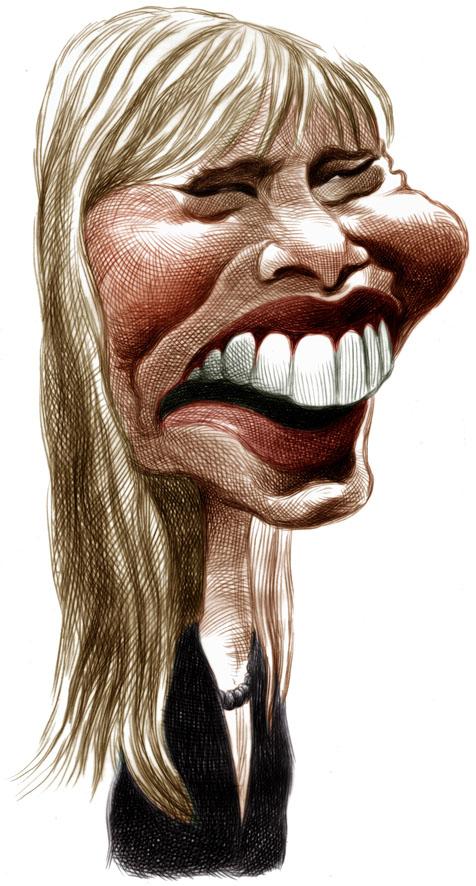Harriton Jukebox: Blue by Joni Mitchell
Ron Coddington/MCT
Throughout history, there have been many artists who have influenced our culture and changed our views of the world. Whether male or female, they are able to send messages about politics, disease, poverty, and love through melodies that are as profound as they are daring.
One artist who demonstrates this is Joni Mitchell. Her music has often consisted of commentaries on religion, stories of history, and love ballads — especially in her 1971 masterpiece album Blue, which details the struggles of a young woman living in a time of swift change.
It started with her relationship with the famous crooner, James Taylor. Her desire to help him, to work through his substance abuse or give him solace, is expressed in the song “All I Want.” Mitchell even adds intimate inside stories and jokes, such as “I want to knit you a sweater / I want to write you a love letter” — an allusion to the gifts she gave him.
Her devotion to him is also expressed in the song “A Case of You,” which features descriptions of her infatuation with him and fear of their end. She sings that he is “in my blood like holy wine.” She obviously struggled with this relationship, and longed for happiness and bliss in a world where it was not seemingly possible.
“I wish I had a river, I could skate away on” she cries in her high pitched voice which floors the listener with its command, while still maintaining a sense of weakness and defeat. The relationship seems to end with the song “This Flight Tonight,” where she describes her regret about leaving her beloved behind — a poem lyrically, while musically it is dazzlingly folk-rock, ends with “shouldn’t have got on this flight tonight.”
The tunes do not stop there, with other highlights, such as “Little Green.” The song is a touchingly tragic one that shows the struggle of giving up a baby up for adoption. Mitchell mournfully whispers that she wants the girl to “have a happy ending.”
In “California” she sings about The Golden State and how she misses the “folks I dig,” and in “Carey” she chimes about a village chief she met in Matala (a part of Europe). The record ends with “The Last Time I Saw Richard,” recounting a man she once knew and loved but now only remembers with pity, for both Richard and herself.
The album was a turning point in American art, music, and literature. Its lyrics were stark, bare, and extremely honest. The instruments used were minimal, adding to the nakedness of the music — exclusive of any synthesizers, electric pianos, or even much percussion besides a piano.
As Mitchell said in an interview, “The Blue album, there’s hardly a dishonest note in the vocals. At that period of my life, I had no personal defenses. I felt like a cellophane wrapper on a pack of cigarettes. I felt like I had absolutely no secrets from the world and I couldn’t pretend in my life to be strong. Or to be happy. But the advantage of it in the music was that there were no defenses there either.”
Mitchell’s inclination to be open about her life has greatly affected people of all kinds, and the world is better for it.

Joel Danilewitz is a senior and is proud to be a part of the Banner community! Joel has been writing with the Banner since he was a freshman, and while...


